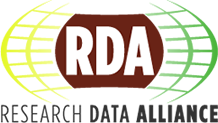Ask Me Anything Call On FSCI: Reproducibility theory and practice. 18th December 2019 @ 15:00-16:00 UTC /10:00-11:00 EDT/07:00-08:00 PST
16/12/2019

The Early Career and Engagement Interest Group (ECEIG) of the Research Data Alliance (RDA) presents this month's "Ask me Anything" meeting; the Early Career and Engagement Interest Group (ECEIG) has been formed within RDA with a focus on connecting with and supporting early career professionals both within and outside RDA. The "Ask me Anything" meetings are hosted on a monthly basis, addressing topics that might be of general interest to ECRs - this month's AMA is dedicated to:
FSCI: Reproducibility theory and practice

Dr. Anita Bandrowski trained as a neurophysiologist at UCR and Stanford, however moved to bioinformatics with the human genome project at Celera Inc., seeing that high throughput science has much to teach biologists. Dr. Bandrowski works at the FAIR Data Informatics Lab at UCSD and is also an instructor for the FSCI summer institute, teaching the Research Reproducibility in Theory and Practice course https://www.force11.org/fsci/2019/course-abstracts#AM3. This course focuses on issues of reproducibility in research from a broad perspective. Dr. Bandrowski is also one of the founders of and oversees the Research Resource Identifiers (RRIDs) project https://scicrunch.org/resources – which provides a Resource Identification Portal supporting new guidelines for Rigor and Transparency in biomedical publications.
If you are interested in attending please note that registration is required:
Additional information:
The talk will be held online on Wednesday, December 18th at 15:00-16:00 UTC (10:00-11:00 EDT)
*Click here to find out the time of the event in your time zone.
Short bio from Dr. Bandrowski
I am a neurophysiologist by training, but for the past decade I have been working in the area of informatics to increase access to and utilization of neuroscience data. Just as science was able to harness the power of the printing press to foster scientific communication and collaboration, we must now establish the means for communicating and utilizing the digital technologies for scientific communication and discovery. For this reason, I have been working in the area of knowledge representation in the neurosciences within the Neuroscience Information Framework (NIF). I am the scientific lead of the NIF project, which under my direction has grown into the largest source of neuroscience data and tools on the web. Through NIF and my neuroscience background, I have a unique global perspective on issues in data sharing and utilization in the neurosciences and have gained considerable insight and expertise in working with diverse biomedical data. We have recently extended the NIF framework to develop data portals for NIDDK (dkNET) and the RRID community portal. I serve as the lead for the Resource Identification Initiative, a FORCE11, the Future of Research Communications and e-Scholarship, group dedicated to transforming scholarly communication. RRIDs are unique identifiers for Key Biological Resources, aggregated by our group from community databases and requested from authors in participating journals, including Cell, eLife and others. My background in working in Neuroscience data, bioinformatics and ontology development makes me well suited to lead SciCrunch, a technology startup focused on making sense of big biological data.
https://www.ncbi.nlm.nih.gov/myncbi/[email protected]/cv/114728/
Twitter: @Anitabandrowski
ORCID: orcid.org/0000-0002-5497-0243
